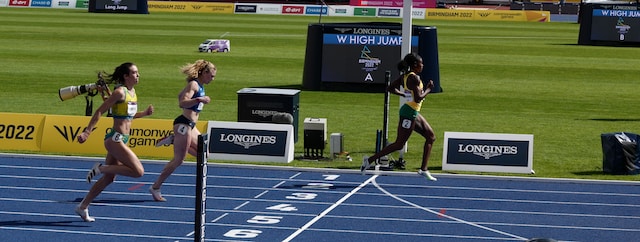The spirit of international togetherness, physical excellence, and cultural variety are all embodied in the Commonwealth Games. This four-year multi-sport tournament unites Commonwealth countries, promoting friendly rivalry and unity on the international front. The Games, which have a long tradition and a strong commitment to fostering diversity, highlight the abilities of athletes from all backgrounds and highlight the special connection that exists between Commonwealth countries thanks to the common language of sport.
History and Significance
The history and significance of the Commonwealth Games trace a remarkable journey that transcends mere athletic competition. The inaugural edition took place in 1930 in Hamilton, Canada, where eleven countries participated in an event then known as the British Empire Games. Since its inception, the Games have undergone various transformations, reflecting shifts in global politics and the Commonwealth itself. The Games serve as a symbolic reminder of the shared values and historical ties that bind the member nations, fostering a sense of unity and goodwill.
Over the years, the Commonwealth Games have become a vital platform for athletes from diverse cultures and backgrounds to showcase their talents on an international stage. The event promotes cultural exchange and mutual understanding, providing a unique opportunity for nations to come together in the spirit of friendly competition. It has also played a role in breaking down barriers and fostering connections between countries, transcending political and historical differences.
In addition to improving athletics, the Commonwealth Games leave a lasting legacy in the form of improved community involvement, sporting facilities, and infrastructure in the host cities. The occasion leaves a lasting impression on the areas lucky enough to host it and acts as a stimulus for social and economic development. We learn more about the Commonwealth Games’ significance and history as we investigate how this athletic extravaganza inspires and unites nations in the quest of greatness, friendship, and common humanity.
Host Cities
A competitive bidding procedure is used to choose the host cities for the Commonwealth Games, taking into account aspects including site preparation, infrastructure, and social and economic advantages. The fact that cities from many continents hosted the Games demonstrates its global inclusion, which will have a long-lasting effect on both concrete and intangible legacies. The Games serve as a catalyst for urban development, promoting long-term growth, improving the city’s appeal, and offering a venue for cultural exhibitions that strengthen ties between varied individuals and promote communal pride.
Sporting Events
A wide range of sports, including classic Olympic sports like gymnastics, swimming, cycling, and athletics, are featured at the Commonwealth Games. In addition, Commonwealth sports that are important to culture, like cricket and netball, are promoted. By include para-sports, exhibiting individuals with impairments, and encouraging unity and diversity, the Games also place a high priority on inclusion. Furthermore, the occasion provides a stage for new and unconventional sports to become internationally recognised and advance the overall growth of sports globally.
Athletes and participants
Athletes from many backgrounds and cultures who exemplify sportsmanship, camaraderie, and friendly competition are the focal point of the Commonwealth Games. World-class athletes, including champions and up-and-coming talents, are drawn to the event because it provides them with a special opportunity to showcase and evaluate their skills. Para-sport competitions, which include athletes with impairments and challenge stereotypes while inspiring audiences worldwide, emphasise inclusivity. Apart from the sports arena, Commonwealth Games participants make a valuable contribution to cultural exchange by creating ties that promote unity and a common goal beyond national lines.
Venues and Facilities
Selected through competitive bidding, the Commonwealth Games sites are dynamic environments that foster international friendship, competitive spirit, and sportsmanship. In order to satisfy the high criteria set by the Commonwealth Games Federation, host towns invest in cutting-edge infrastructure, such as recognisable stadiums and specialised arenas. These locations improve local infrastructure, serve as drivers for urban growth, and leave a lasting legacy that extends beyond the event. Held in large stadiums, the opening and closing ceremonies highlight the cultural diversity and depth of the Commonwealth and the host country via enthralling performances that stand for harmony and diversity.
Opening and Closing Ceremonies
The Commonwealth Games’ magnificent opening and closing ceremonies are performances that go beyond athletics to represent the rich cultural variety, shared history, and solidarity of the member nations. These events act as the colourful preface to the sporting contests, giving host towns a chance to present their ingenuity, culture, and friendliness on a worldwide scale.
The Games begin with the opening ceremony, which gives the host country a chance to greet competitors and spectators with a breathtaking exhibition of creative performances and cultural expressions. Athletes from many countries joyously march into the stadium as part of the parade of nations, which is a hallmark of the event. A ceremonial touch is added to the proceedings with the lighting of the Commonwealth Games Cauldron, a symbol of the spirit of the tournament. The opening ceremony creates a spirit of unity among the many competing nations and sets the tone for the days of friendly rivalry to come.
On the other side, the closing ceremony marks the end of the Games in a moving way, honouring the competitors’ accomplishments and saying goodbye to the global sports spectacle. It frequently involves a reflection on the cultural highlights of the host nation, a handover to the next host city, and the burning of the Games Cauldron. Athletes gather for a last time during the closing ceremony to celebrate the worldwide solidarity that characterises the Commonwealth Games and to acknowledge the ties that were formed during the competition.
Both ceremonies are meticulously choreographed productions that involve a fusion of music, dance, visual effects, and technology. Renowned artists, performers, and cultural icons often participate, adding a touch of star power to the festivities. The ceremonies not only entertain and inspire but also serve as a powerful representation of the shared values and aspirations that unite the Commonwealth nations.
Commonwealth Games Federation
The worldwide governing organisation that oversees the Commonwealth Games, the Commonwealth Games Federation (CGF), makes sure that the values of inclusion, sportsmanship, and international collaboration are upheld. The Commonwealth Games Foundation (CGF), which was founded in 1930, brings together delegates from all 72 Commonwealth member countries and territories to work together to promote the objectives of the Commonwealth Charter in sports. Among the duties include choosing the host city, enforcing regulations, advancing Commonwealth ideals, involving athletes and communities, and supporting legacy planning. The Commonwealth Games are guided by the CGF, which envisions the use of sport to promote good change and serve as a global symbol of friendship, togetherness, and sports achievement.
FAQs
How are host cities selected for the Commonwealth Games?
The Commonwealth Games Federation (CGF) is in charge of overseeing a competitive bidding process that chooses host cities for the Commonwealth Games. Bids from interested cities are submitted, detailing their infrastructure, preparedness, and dedication to hosting the event. The host city that most closely adheres to the ideals and regulations of the Commonwealth Games is chosen by the CGF after evaluating these bids in accordance with a set of criteria.
What sports are featured in the Commonwealth Games?
Numerous sports, including classic Olympic events like gymnastics, swimming, cycling, and athletics, are featured at the Commonwealth Games. The Games also feature sports like cricket and netball that are important in the Commonwealth. A vital component of the Commonwealth Games are para-sports, which include elite competitors with impairments.




